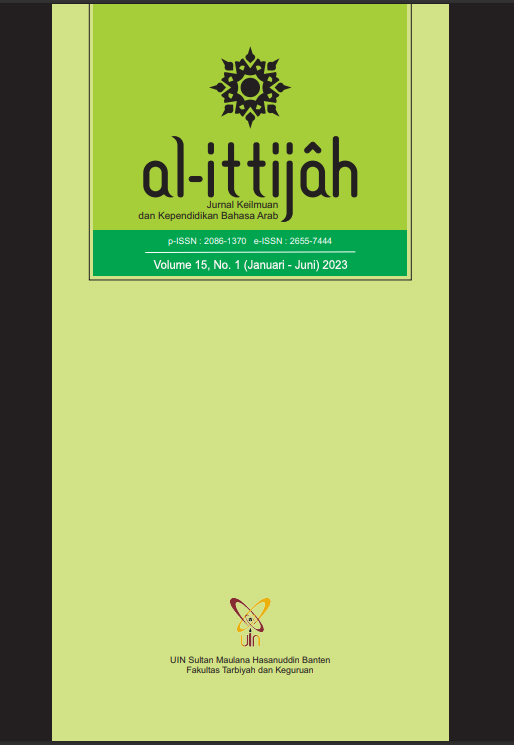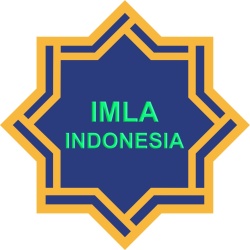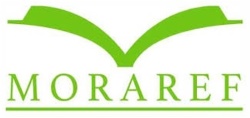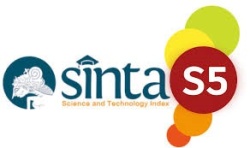Reduction Techniques in Arabic-Indonesian Imperative and Nominal Sentence Translation
 DOI:
DOI:
https://doi.org/10.32678/alittijah.v15i1.8280
 Abstract viewed : 253 times
|
Abstract viewed : 253 times
|  PDF downloaded : 438 times
PDF downloaded : 438 times
Keywords:
reduction technique, imperative sentence, nominal sentenceAbstract
Language is a means of communication that humans use to communicate with each other both orally and through text. A translation process is needed so that the listener or reader can understand the intent of the speaker or writer. This research aims to explain the use of reduction techniques in translating Arabic imperative sentences and Arabic nominal sentences into Indonesian by analyzing in terms of I’rab, syntax function and syntax category, as well as the pattern used in translation. This research can add insight to the reader and person who wants to be a translator (Arabic language into the Indonesian language) by giving a detailed explanation regarding reduction techniques and their use in imperative and nominal sentences. The method used, namely qualitative descriptive with a case study from some Arabic sentences that changed the form of reduced syntax functions when translated into the Indonesian language. Through this research, it is known that the reduction technique for solving the Arabic language into the Indonesian language needs to use because of the existence of the second person pronoun (the person being spoken/dhamir mukhatab) no need to mention in Indonesian imperative sentences. The same goes for nominal sentences; reduction technique is used based on the assumption that a syntactic function in Arabic as the source language is not always required in Indonesian as the receiving language.
Downloads
References
Al-Farisi, M.Z. Pedoman Penerjemahan Arab-Indonesia. Bandung: PT Remaja Rosdakarya, 2011.
Al-Hasyimi. Jawahirul Balaghah Fil Ma’ani Wal Bayan Wal Badi’. Beirut: Darul Kutubil ‘Ilmiyyah, 2001.
Chaer, Abdul, and Leonie Agustina. Sosiolinguistik: Perkenalan Awal. (No Title). jakarta: Rineka Cipta, 2004.
Darmiyati Zuchdi, Ed D, and Wiwiek Afifah. Analisis Konten Etnografi & Grounded Theory, Dan Hermeneutika Dalam Penelitian. Vol. 314. Bumi Aksara, 2021.
Dr. Aninditya Sri Nugraheni, M P. Bahasa Indonesia Di Perguruan Tinggi Berbasis Pembelajaran Aktif. Jakarta: Prenada Media, 2019.
Emzir. Teori Dan Pengajaran Penerjemahan. jakarta: RajaGrafindo Persada, 2015.
Finoza, L. Komposisi Bahasa Indonesia. Jakarta: Diksi, 2013.
Fitriyani, Khusnul, and Mukhlish Mukhlish. “Kalimat Imperatif Dalam Teks Prosedur.” Deiksis 13, no. 3 (2021): 241–48.
Junining, E. Strategi Dan Kiat Praktis Penerjemahan. Malang: Universitas Brawijaya Press, 2018.
Kridalaksana, H. Kelas Kata Dalam Bahasa Indonesia. Jakarta: PT Gramedia, 1994.
Kurnia, A. Seni Penerjemahan Sastra: Panduan, Gagasan, Dan Pengalaman. Edited by Yus R. Yogyakarta: Diva Press, 2022.
Moleong, L J, and Lexy. Metodologi Penelitian Kualitatif. Bandung: Rosda Karya, 1995.
Molina, L. dan Albir, A.H. “Translation Technique Revised, A Dynamic and Functionalist Approach.” Meta XLVII, No. (2002): 499–512.
Mumpuni, A. Integrasi Nilai Karakter Dalam Buku Pelajaran: Analisis Konten Buku Teks Kurikulum 2013. Yogyakarta: Deepublish, 2018.
Nur, Tajudin. Metode Dan Teknik Penerjemahan Arab-Indonesia. Bandung: Unpad Press, 2021.
Qalyubi, S. Stilistika Al-Qur’an: Makna Di Balik Kisah Ibrahim. Edited by Umi Nurun Ni’mah. Yogyakarta: LKIS PELANGI AKSARA, 2008.
Rahardi, R Kunjana. Pragmatik: Kesantunan Imperatif Bahasa Indonesia. jakarta: Erlangga, 2005.
Rahmat, Pupu Saeful. “Fenomena Cara Belanja Online Shop Di Kalangan Mahasiswa (Studi Kasus: Mahasiswa Prodi Pendidikan Ekonomi UNIKU).” Equilibrium: Jurnal Penelitian Pendidikan Dan Ekonomi 16, no. 01 (2019): 82–91.
Setiawan, Hendro Eko, Atika Rizqoh, and A Md. RUMUS RUMUS TERJEMAH ARAB-INDONESIA: Sebuah Teori Dan Praktik. Edited by Hanan Seroja Kalandra. Bengkulu: CV. Sinar Jaya Berseri, 2022.
Sidu, La Ode. Sintaksis Bahasa Indonesia. Kendari: Unhalu Pres, 2013.
Sugiyono. Metode Penelitian Kuantitatif, Kualitatif Dan R&D, 2019.
Syihabuddin. Penerjemahan Arab-Indonesia, Teori Dan Praktek. Bandung: Humaniora, 2005.
Taufikurrahman. Literasi 100 Buku Bahasa Arab Kontemporer Di Indonesia. sleman: Deepublish, 2020.
Downloads
Published
Versions
- 2023-10-03 (2)
- 2023-10-03 (1)
Issue
Section
License
Copyright (c) 2023 ade irma, Ubaidillah

This work is licensed under a Creative Commons Attribution-ShareAlike 4.0 International License.















